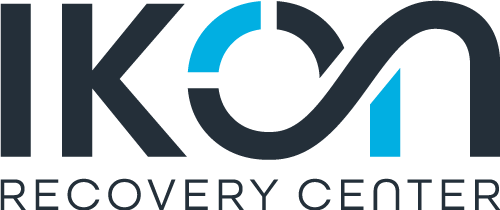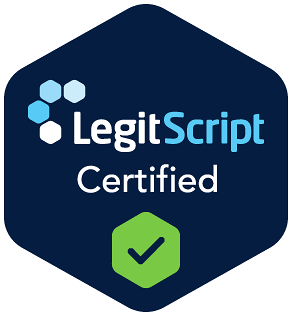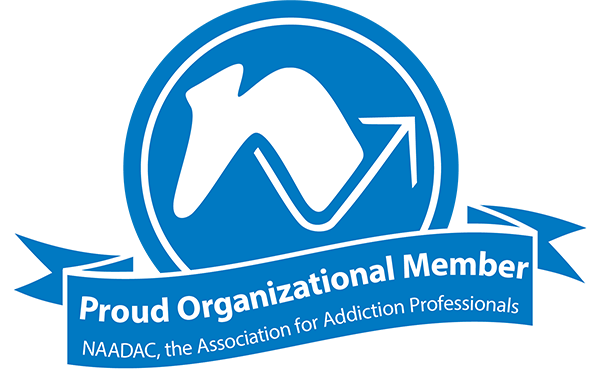Empower your treatment with IOP services from Ikon Recovery, New Jersey’s leader in compassionate addiction and mental health care.
Intensive Outpatient
Treatment Program (IOP) in New Jersey
What is Intensive Outpatient Treatment For Addiction?
Intensive Outpatient Treatment (IOP) is a structured and comprehensive level of care for individuals dealing with substance use or mental health issues.[1] It typically involves frequent sessions, often several days a week, offering a more intensive therapeutic experience than standard outpatient care.[2]
IOP provides a balance between the support of inpatient treatment and the flexibility of outpatient care, allowing individuals to engage in therapy, counseling, and skill-building activities while still maintaining some level of independence and involvement in daily life activities. The specific components and duration of IOP can vary based on individual needs and program design.
Typically spanning three to five days a week, IOP involves several hours of therapy sessions each day, striking a balance between the support of inpatient treatment and the flexibility of outpatient care.[3] A multidisciplinary team of licensed professionals, including psychiatrists, psychologists, social workers, and counselors, collaborate to deliver tailored interventions best suited to your needs.
Ikon Recovery Center is proud to offer IOP for substance use and co-occurring disorders, providing proven and unique treatment strategies to help you or a loved one rediscover hope and live your best life again. Our intensive outpatient program in New Jersey was designed with whole-person care in mind, combining the best in evidence-based treatment with several integrative supports for holistic care.
Intensive Outpatient Care At A Glance
Program Length
Treatment Modalities
ASAM Level of Care Rating
How (and Why) Intensive Outpatient Treatment Works
Intensive outpatient treatment is highly effective due to its balanced approach of structured therapy and real-world independence. By offering a comprehensive continuum of care, IOP allows individuals to transition from more intensive levels of treatment (or can also serve as an entry point),[4] offering personalized attention and a sense of community.
Skill-building activities focused on developing coping mechanisms and relapse prevention strategies are immediately applicable to daily life, empowering individuals to navigate challenges independently.
What To Expect In An IOP Program: New Jersey
A Structured Schedule And Comprehensive Care:
Intensive outpatient treatment operates on a structured schedule, involving therapy sessions several times a week. This level of care provides the kind of comprehensive support you need to immerse yourself in the recovery process while still maintaining a sense of independence.
Flexibility:
Unlike residential or inpatient treatment settings, IOP provides flexibility as clients can live at home, work, or attend school around their treatment. This independence encourages self-responsibility and the application of learned skills in their day-to-day lives.
Engagement In Services:
Clients engage in both individual and group therapy sessions, fostering a balance between personalized attention and a sense of community. The support system within group therapy is crucial for creating connections and sharing experiences to decrease feelings of shame and increase your investment in the recovery process.
Increased Accessibility:
IOP is generally more cost-effective compared to residential treatment, making quality care more accessible. This affordability enables a broader range of individuals to receive the necessary support for their recovery.
Skill Building:
IOP focuses on teaching coping skills, stress management, and relapse prevention techniques. These skills are immediately applicable to real-life situations, helping individuals navigate daily challenges and reinforcing their recovery journey.
Long-Term Success:
IOP promotes self-responsibility for recovery. By navigating daily responsibilities and potential triggers independently, individuals build resilience, contributing to sustained recovery. Research suggests that the ongoing support and skill-building in IOP lead to comparable long-term success rates as residential treatment.
At Ikon Recovery, we champion a holistic and individualized approach to intensive outpatient treatment for substance use and mental health concerns. Our providers work in collaboration with you to design a customized substance abuse treatment plan that considers your unique needs and circumstances. By integrating mind-body approaches and personalized care, we’re able to empower you with the tools to reach your fullest potential.
What additional recovery support is available after treatment?
Ikon Recovery is your long-term recovery partner, helping you rebuild your life and restore your full potential. Additional post-treatment support includes:
- Housing Assistance
- Credit Repair
- Continued Education
- Job Search Assistance
- Financial Guidance
- Community Service Opportunities
- Transportation Assistance
- Nutrition & Health Guidance
The Success of IOP Programs In NJ
IOP has long been regarded as an effective treatment intervention for substance abuse and dual diagnosis concerns, with the literature reflecting its efficacy in decreasing drug and alcohol use as part of a comprehensive treatment plan.[5] IOP treatment programs provide clients with accessible treatment services and further linkage to other vital social services in the community,[6] helping them to build new recovery skills and grow a better sense of connectivity.
IOP has also been demonstrated to work best as a part of a continuum of care, helping to engage clients in a more comprehensive treatment solution for drug addiction and co-occurring needs.[6]
Intensive Outpatient Program Alumni
Intensive Outpatient Treatment and the Continuum of Care
IOP treatment services are considered to be level 2.1 within the continuum of care per the American Society of Addiction Medicine criteria.[7] This designation reflects the structured yet flexible nature of IOP, in which individuals receive substantial therapeutic support several times a week, allowing for a comprehensive approach to drug or alcohol addiction treatment.
Ikon Recovery specializes in crafting individualized care plans that align with the unique needs of each participant. Through a thorough assessment process that considers the ASAM Criteria, personal goals, and our clinician’s expertise, we develop a personalized roadmap for your recovery journey at every step of the way. This approach ensures that you receive ongoing support that’s personalized to you, promoting lasting positive change and well-being.
Frequently Asked Questions about Intensive Outpatient Programs in New Jersey
How Do IOPs Differ From Inpatient Rehab Programs?
Inpatient rehab is the highest level of care and is often a solution for more severe disorders or substances. This requires a significant time commitment and live-in status that is not required for partial care or IOP programs.
Is IOP suitable for everyone, or are there specific criteria for participation?
IOP is designed for individuals who need a structured level of care but can maintain some level of independence. It may be suitable for those transitioning from higher levels of care, individuals with a stable home environment, or those who require ongoing support while managing their daily responsibilities. IOP is normally not appropriate for those in danger of withdrawal as they may require medically supervised detox for safety. A thorough assessment is typically conducted to determine suitability.
What happens after I complete IOP?
Most people will then transition to a less intensive level of care, such as outpatient therapy, or continue to engage with aftercare services. Aftercare plans are typically tailored to the individual’s ongoing needs and may include outpatient therapy, support groups, or other community resources to maintain the progress achieved in the IOP program.
How can I know that IOP is the right choice for me?
The decision to enter IOP is typically made after a thorough assessment by a professional. Consulting with a treatment provider can help you to determine the appropriateness of IOP for your specific situation.
Sources
[1] Intensive outpatient therapy: What it is, programs, and more. (2022, April 28). Www.medicalnewstoday.com. Retrieved from https://www.medicalnewstoday.com/articles/intensive-outpatient-therapy on November 22, 2023
[2] Mental health care (intensive outpatient program services) | Medicare. (n.d.). Www.medicare.gov. Retrieved November 22, 2023, from Retrieved from https://www.medicare.gov/coverage/mental-health-care-intensive-outpatient-program-services on November 22, 2023
[3] Program Profile: Intensive Outpatient Program (IOP) and Non-Hospital Residential (NHR) Program. (n.d.). CrimeSolutions, National Institute of Justice. Retrieved from https://crimesolutions.ojp.gov/ratedprograms/565 on November 22, 2023
[4] Rychtarik, R. G., Connors, G. J., Whitney, R. B., McGillicuddy, N. B., Fitterling, J. M., & Wirtz, P. W. (2000). Treatment settings for persons with alcoholism: evidence for matching clients to inpatient versus outpatient care. Journal of Consulting and Clinical Psychology, 68(2), 277–289. Retrieved from https://psycnet.apa.org/doiLanding?doi=10.1037%2F0022-006X.68.2.277 on November 22, 2023
[5] McCarty, D., Braude, L., Lyman, D. R., Dougherty, R. H., Daniels, A. S., Ghose, S. S., & Delphin-Rittmon, M. E. (2014). Substance Abuse Intensive Outpatient Programs: Assessing the Evidence. Psychiatric Services, 65(6), 718–726. https://doi.org/10.1176/appi.ps.201300249 on November 22, 2023
[6] CLINICAL ISSUES IN INTENSIVE OUTPATIENT TREATMENT FOR SUBSTANCE USE DISORDERS. (n.d.). Retrieved from https://store.samhsa.gov/sites/default/files/pep20-02-01-021.pdf on November 22, 2023
[7] American Society of Addiction Medicine. (2022). About the ASAM Criteria. Retrieved from https://www.asam.org/asam-criteria/about-the-asam-criteria on November 22, 2023
